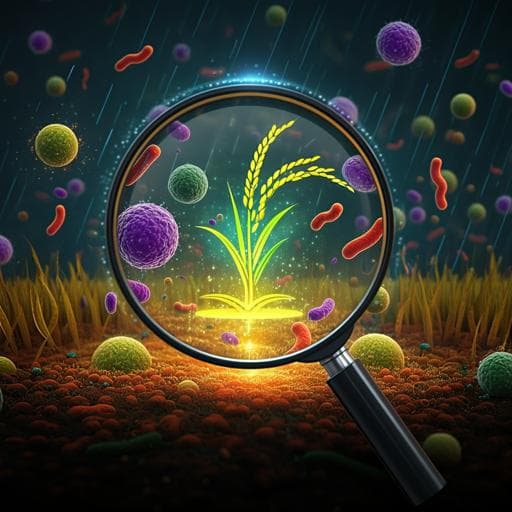
Agriculture
Microbiome variation correlates with the insecticide susceptibility in different geographic strains of a significant agricultural pest, *Nilaparvata lugens*
Y. Zhang, T. Cai, et al.
This intriguing study by Yunhua Zhang, Tingwei Cai, Maojun Yuan, Zhao Li, Ruoheng Jin, Zhijie Ren, Yao Qin, Chang Yu, Yongfeng Cai, Runhang Shu, Shun He, Jianhong Li, Adam C. N. Wong, and Hu Wan explores the relationship between microbiome composition and insecticide resistance in brown planthopper strains. The research uncovers how environmental factors influence microbial symbionts, opening avenues for innovative resistance management strategies.
Related Publications
Explore these studies to deepen your understanding of the subject.







